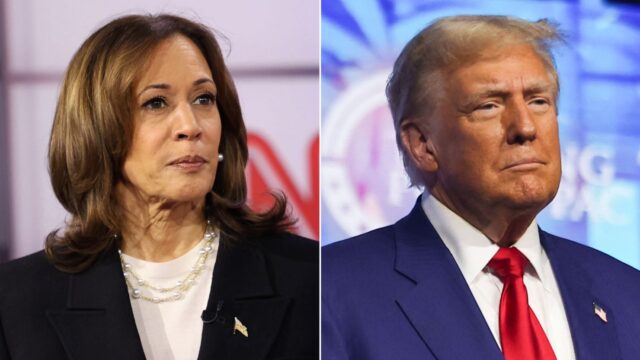The 2024 Presidential Election has brought two prominent figures to the forefront: Donald Trump and Kamala Harris, each carrying distinct economic and policy stances that could shape the real estate market in the coming years. As property values, interest rates, and housing regulations remain key concerns for investors, homeowners, and industry professionals, the market will closely follow potential shifts driven by the new administration. So what are the prospective impacts each candidate’s policies might have on real estate? From tax changes and mortgage rates to affordable housing initiatives—What potential scenarios and changes should stakeholders prepare for under each possible administration?
Mortgages If Harris is President
If Kamala Harris were to become president, her housing policies could bring significant changes for prospective homebuyers, particularly those seeking mortgage assistance. One of the central proposals in Harris’s housing plan is a $25,000 down payment assistance initiative for first-time homebuyers. This assistance aims to help renters who have consistently paid their rent on time for at least two years, with additional support for first-generation homeowners. The plan is part of a broader effort to make homeownership accessible for low- and middle-income families, aiming to empower around 4 million new homeowners over four years. Read more on the down payment assistance here.
However, experts suggest this influx of financial assistance could have mixed outcomes for buyers. On the positive side, the policy could help reduce the initial financial barriers that prevent many from entering the housing market, creating more equitable access to homeownership. On the other hand, an increase in purchasing power without a corresponding increase in housing supply might drive up home prices, particularly in lower-cost or starter home markets. To address this, Harris has proposed the construction of 3 million new housing units to ease inventory shortages, coupled with tax credits for builders. By boosting both demand and supply, this dual approach could help stabilize home prices while increasing affordability.
For more information on Harris’s proposed policies and their potential impacts, you can review the details on her official platform here.
Mortgages If Trump is President
If Donald Trump were to become president, several of his policies could affect homebuyers, particularly those seeking mortgages. Trump’s campaign emphasizes deregulation, aiming to reduce federal restrictions and environmental requirements that drive up construction costs. This could potentially lead to an increase in housing supply, particularly in suburban areas. Additionally, Trump is likely to revive policies from his first term, like the White House Council on Eliminating Barriers to Affordable Housing Development, which advocated for easing land use regulations to promote affordable housing construction.
One significant shift under a Trump administration could be the release of Fannie Mae and Freddie Mac from government conservatorship. Trump supports privatizing these entities to reduce government involvement, which could impact mortgage availability and pricing. His previous administration also rolled back the Affirmatively Furthering Fair Housing (AFFH) rule, limiting low-income housing development in suburban neighborhoods—a policy Trump may maintain if elected.
For additional details, you can read about Trump’s housing policies on Bipartisan Policy Center.
If elected, both Kamala Harris and Donald Trump propose unique approaches to support homebuyers, each with potential benefits.
Harris focuses on improving affordability, offering a $25,000 down payment assistance program for first-time homebuyers and supporting large-scale housing projects to address supply shortages. This plan aims to make entry into homeownership easier, especially for middle- and lower-income families.
Trump’s approach leans toward deregulation, seeking to streamline construction processes by reducing federal requirements. His policies encourage more private-sector involvement, including potential reforms to Fannie Mae and Freddie Mac, which could lead to greater mortgage flexibility. Both approaches could boost homeownership, albeit with different strategies to tackle affordability and supply issues.








